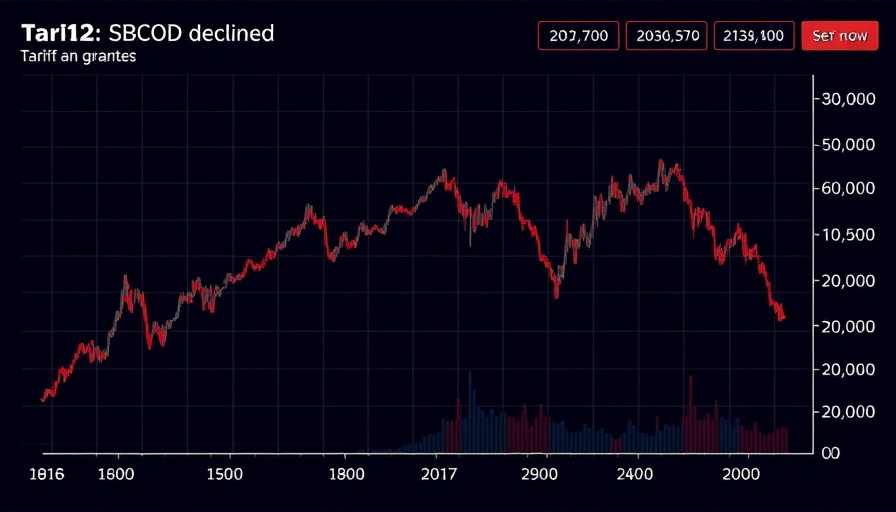
Understanding the Current Stock Market Dynamics
As the U.S. stock market resumes its sell-off amid heightened trade tensions, traders are particularly concerned about how tariff announcements will impact corporate earnings and economic growth. This turmoil reflects broader anxieties regarding the trade relationship between the United States and other global powers, particularly China. Recent data indicates that tariffs could lead to increased costs for consumers and businesses alike, especially in key sectors like technology and manufacturing.
The Impact of Tariffs on Market Sentiment
The ongoing trade dispute has created uncertainty in the market, resulting in sharp fluctuations. Investors are closely monitoring developments; stocks are reacting strongly to any news regarding negotiations or tariff updates. For example, tech stocks, which are particularly sensitive to supply chain disruptions, have faced significant pressure due to fears over increased tariffs on imported components.
Global Economic Climate and Its Influence on Local Markets
Beyond the immediate implications of tariffs, there are broader economic factors at play. Global growth forecasts have been revised downward, prompting fear that this could lead to slower corporate earnings growth across various sectors. In the Bay Area, where many Silicon Valley startups depend on a steady influx of venture capital funding and international partnerships, such uncertainties can dampen innovation and hinder the startup ecosystem's growth.
You Can Strategize for Business Growth Amid Market Volatility
For Bay Area businesses, understanding stock market trends is crucial. Businesses can adopt growth strategies that include diversifying their markets and embracing digital transformation to mitigate risks posed by such economic uncertainties. For instance, small startups might focus on securing local funding to lessen reliance on external factors that a trade war could influence, thus ensuring they remain resilient in challenging times.
Future Predictions: Navigating Uncertain Waters
Economists are divided on future market performance. Some predict a potential recovery if negotiations lead to favorable outcomes, while others caution that ongoing tariff disputes could drag the economy into a slowdown. However, the resilience of the Bay Area economy, with its emphasis on tech innovation and sustainable business practices, could provide a buffer against these external pressures. The local business community will need to stay agile, adapting to changed consumer behaviors and evolving market demands.
Actions to Take: Making Informed Decisions
Investors and entrepreneurs should focus on actionable insights that allow for informed decision-making during these turbulent times. Staying updated on economic forecasts, monitoring the impact of regulatory changes, and understanding consumer behavior trends can equip businesses to pivot as necessary. It’s essential to cultivate a strong network within the Bay Area entrepreneurial community—it can provide crucial support and opportunities amid these challenges.
Conclusion: Building a Sustainable Future
In conclusion, while the immediate outlook is uncertain, Bay Area businesses can look forward to sustainable growth by leveraging innovation and strategic partnerships. As market conditions evolve, staying informed and adaptable will be key to thriving amid the ups and downs of global economic relations. Engage with local business updates, prioritize corporate social responsibility, and embrace sustainability—these are the paths toward enduring success.
 Add Row
Add Row  Add
Add 



Write A Comment